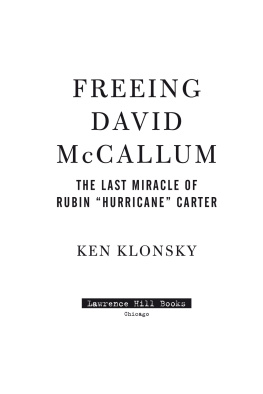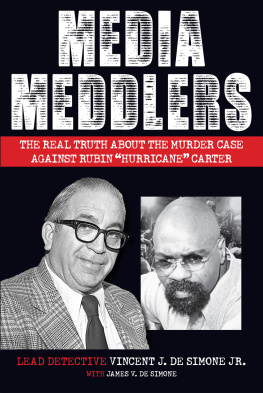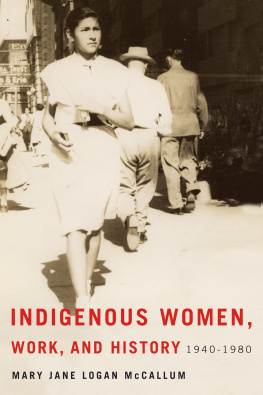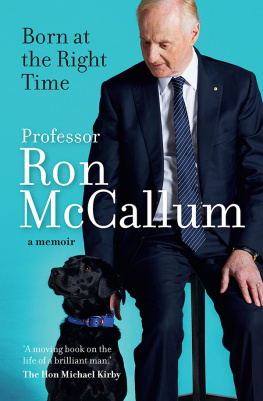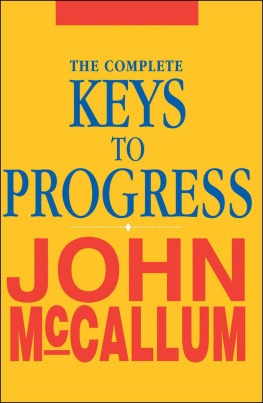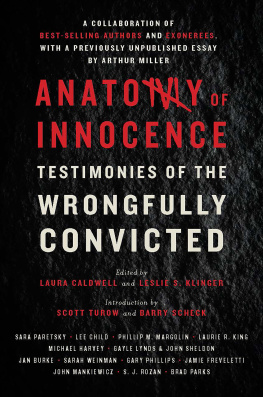INTRODUCTION
If youre giving up on something, what youre really giving up on is yourself.
Rubin Hurricane Carter (19372014)
M y childhood was encompassed by a history of segregation and unmasked brutality that has abated but by no means disappeared. Most of my family and friends disapproved of segregation in the United States, but, as some of us northerners later discovered, we were scapegoating the South to cover our own sins of exclusion.
In Rockville Centre, Long Island, where I lived as a child and adolescent, the African American population lived in Lakeview, a census-designated place (CDP) located adjacent to our town, that few white people ever saw. Back then, its inhabitants provided a workforce for menial jobs and domestic help for the white families of our town. My family and many of my friends families had black maids throughout the time I lived there. Most of the maids came to work via a local bus that made its way up Hempstead Avenue; the only other passengers on this bus were young people who had yet to receive drivers licenses.
Rockville Centre was divided into three religious groups that had minimal contact with each other: descendants of the original Protestant inhabitants who founded the village; Long Islands largest Catholic diocese, with a Catholic hospital and a Catholic school; and a sizeable contingent of upwardly mobile Jewish families to which I belonged. The main property in the village was a golf course, the Rockville Centre Country Club (now Rockville Links Club), an immense fenced-in area that sat in the center of the towns upper-middle-class neighborhoods. My fathers generation did not seem to mind that Jews were excluded from membership; the situation was accepted as a fact of life and the cost of residing in a privileged community with highly respected schools and artesian well water. Kids, myself included, used to climb over the very high surrounding fence and damage the greens and fairways. We resented the exclusion even if our parents did not.
One summer in the mid-1960s, I worked as a security guard and was dispatched to various places in Nassau County. My second assignment, for $1.79 an hour, was at a small public housing development in Lakeview. I wore a dark blue uniform and carried a nightstick, my outfit closely resembling that of the local police force, which was viewed unfavorably by the black population. Given all I knew about policing, I might as well have been wearing a Halloween costume. No one threatened me, but I dont doubt now that the uniform made me a potential target. One hot afternoon, two kids were having a serious argument; a long knife was drawn by one and sunk into the shoulder of the other, passing through the skin with no more resistance than through a stick of butter. Appalled and extremely frightened, I left the premises, billy club in tow. I called in the incident to the police but never bothered to find out how the wounded boy had fared. Soon after, I tried to convince a local reporter to investigate what I presumed was a volatile situation in Lakeview. He expressed interest in the story but dropped it soon after. I suspected that the paper didnt want to stir up a hornets nest.
I requested that the security guard agency find me a new location, resulting in a two-week stint in a bone-chilling supermarket in Long Beach, where one day I confronted a woman for stealing a pack of chewing gum. For some reason, maybe a growing consciousness of social inequalities, witnessing the petty theft and intervening in it felt almost as bad as witnessing the knifing.
In 1967, when I moved up to Toronto to attend graduate school, I came to an understanding of who I had been all those years: a white liberal whose actions failed to match his words. Reading Eldridge Cleavers famous quote from Soul on Ice produced no small amount of discomfort: If youre not part of the solution, youre part of the problem. Perhaps the phrase, like so much in those turbulent times, was too categorical.
Doris Kearns Goodwin, the famous historian and biographer, wrote an autobiographical book in the 1990s, Wait Till Next Year, about growing up in Brooklyn and Rockville Centre. Goodwin, then Doris Kearns, had gone to the same high school as my siblings and me. She made the village sound like Happy Days, and compared to many other places in the world, it was idyllic. However, I wrote to remind her of both the Rockville Centre Country Club and an incident involving Floyd Patterson, the heavyweight champion of the world. Patterson had bought a house in Rockville Centre in the early 1950s only to find a cross burning on his lawn the next day. She acknowledged the memory and regretted the omission, while emphasizing that the story would have been at odds with the intention of the book. A selective forgetting, even while we were young and living there, a blindness to our privilege and the reasons we prospered, was as much a part of my youth as sexual frustration. I believed that the real problem was in the South: murdered civil rights workers, Selma, Birmingham, dogs, whips, fire hoses. While the bodies of African Americans in the North may not have been maimed, their souls were damaged by the indignity of their situation. As a teenager, both in high school and college, I read every book I could find by great black writers such as James Baldwin, Ralph Ellison, and Richard Wright. My interest in their plight coincided with my voracious appetite for Holocaust books. Even then I was obsessed by victimhood and passionately opposed injustice.
I certainly knew about exceptionality. My parents were divorced in 1961, a shocking embarrassment for me in a state where divorce was outlawed. My mother disappeared one day and flew to Mexico with her soon-to-be new husband to have the divorce granted. She left behind a maid to care for me and my father; my brother and sister were away at college. My father was a personable and hardworking businessman and was helpless around the house. He purchased a toolbox when I was a baby, but I never saw him even hammer a nail. The washing machine bewildered him. My mother leaving devastated us both. At the age of fifteen, I was being mothered, in effect, by an African American woman who had to leave her own children in Lakeview and reside in a spare room in our house. I was happy to know that she was able to spend Sundays going to church with her family. Her dislocation and the puniness of her salary produced anger that she could only half conceal.

